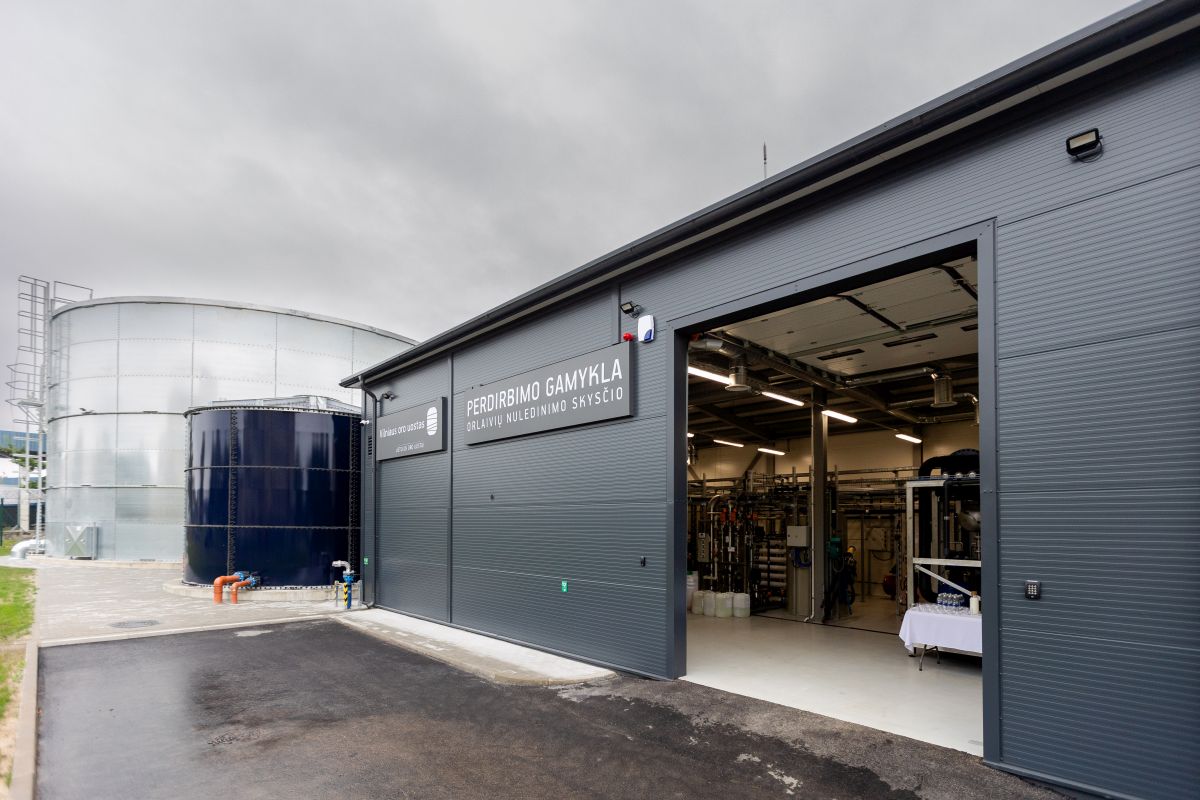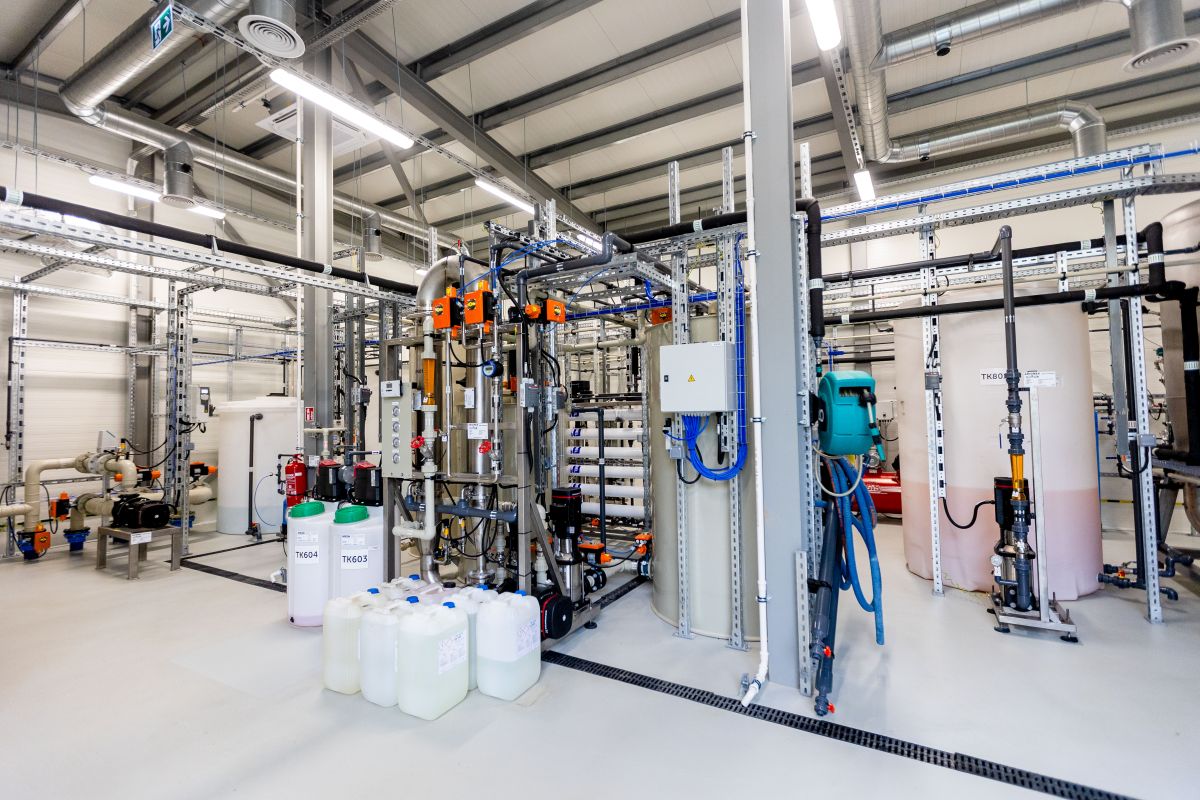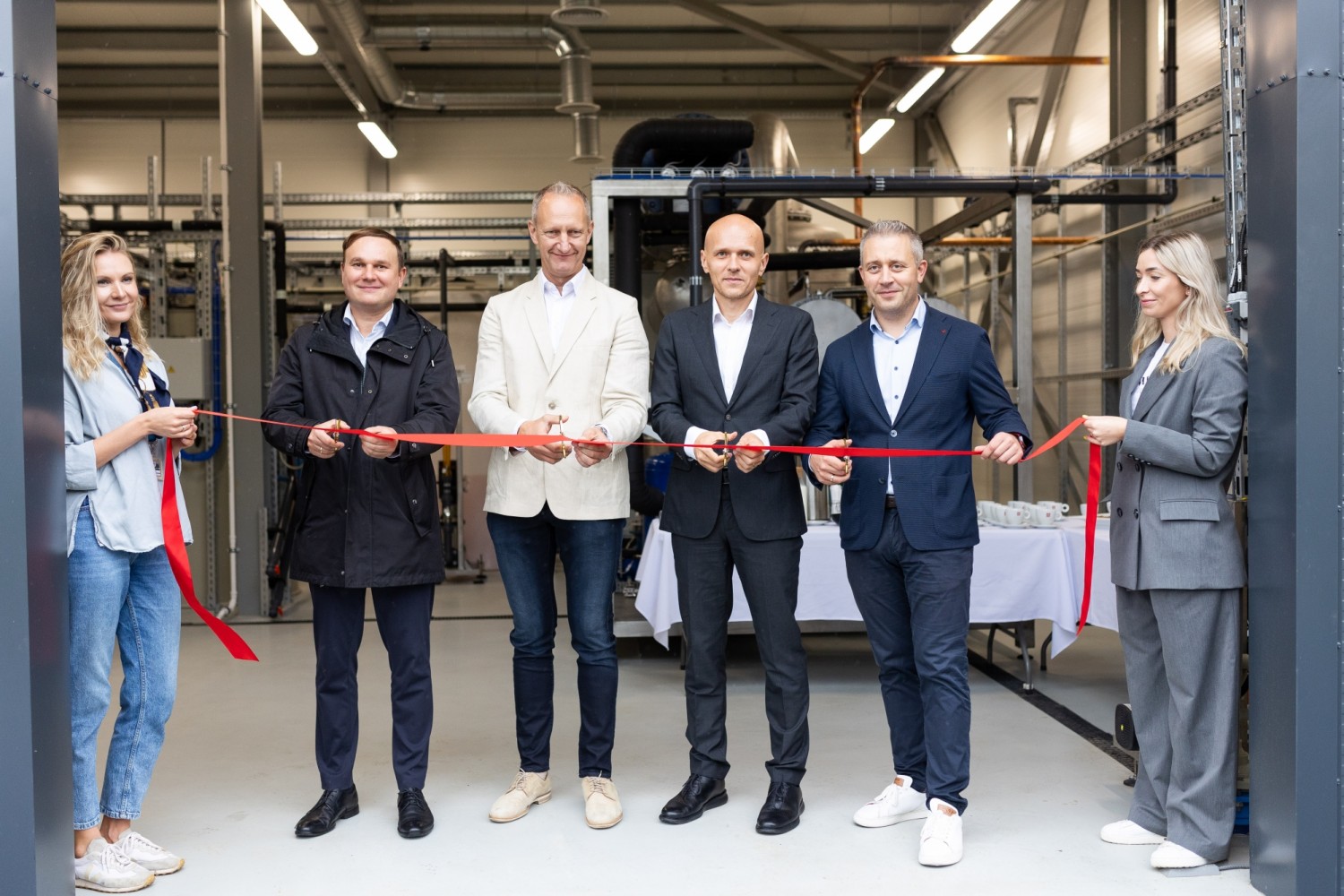First aircraft de-icing wastewater treatment plant in the Baltic States has been opened at Vilnius Airport

This autumn/winter season Vilnius Airport is taking another step towards sustainability. A modern aircraft de-icing wastewater treatment plant will start operating at the airport – the only one of the kind in the Baltic States. It will collect and treat all the wastewater generated during the aircraft de-icing process, which can later be used as a raw material in aviation and other industries. The investment in the de-icing wastewater treatment plant amounted to EUR 2.9 million (excluding VAT). The project was partially financed by the European Union (EU).
Julius Skačkauskas, Deputy Minister of Transport and Communications of the Republic of Lithuania, who participated in the opening ceremony, said that this investment marks a new level of aircraft service quality, aviation safety and sustainable activity in the Lithuanian aviation market.
“Our goal is the development of climate-neutral and sustainable aviation, and one of the tasks set for the airports is the development of safe and sustainable infrastructure. The implementation of such top-level solutions proves that the Lithuanian aviation sector is purposefully moving along the path of both improving the quality of service and increasing security, as well as sustainability and the green course”, said Deputy Minister at the opening ceremony.
The automated aircraft de-icing wastewater treatment plant will make an important part of the reconstruction and strategic development of Vilnius Airport. In addition, according to Arnas Dūmanas, Director of the Development Department of Lithuanian Airports, this is a significant step in the development of the harmonious operation of airports.
“De-icing infrastructure is an important investment in modern aviation technology. From now on, aircraft will be serviced employing advanced sustainability solutions and this will make a significant contribution to our Net Zero (zero emission) commitments by 2030. At the same time, we will ensure even better flight safety and speed of operations at the airport. All this is especially important when serving growing aviation traffic and moving to the next stages of strategic development at Vilnius Airport”, said Dūmanas at the event.
The first such project in the Baltic States started back in 2021, when four special aircraft de-icing areas were installed on both approaches of the taxi-way, on the northern and southern sides of the platform. Now, when installing the plant, engineered de-icing wastewater collection networks, wastewater tanks and other necessary infrastructure have been designed and installed, which are ready for operation today. De-icing procedures are now expected to shorten the distance for aircraft to the taxi-way and reduce the risk of possible re-icing.
According to Giedrius Rutkauskas, CEO of Arionex LT, which installed the plant, the most advanced engineering technologies have been installed, which will allow the substances used in the de-icing process to be collected and treated.
“This small plant is an example of a circular economy. De-icing fluid, which is sprayed onto aircraft wings to prevent them from icing up in flight, previously was not collected. This wastewater will now enter the treatment facilities where it will be treated, and the water will be separated from the de-icing fluid. The de-icing fluid will be used as a raw material for the production of other products. The treated water, the quality of which is equivalent to distilled water, can also be successfully used. The entire collection, cleaning and storage process is fully automated, and the employees will only be responsible for periodic equipment maintenance, process data recording and other measurements,” said Rutkauskas.
The de-icing procedure in the cold season is important for flight safety in the operations of every airport. During it, the entire accumulated layer of snow and ice is removed from a plane with the use of a biodegradable (naturally decomposable) fluid. Also, the surface of an aircraft is additionally covered with a protective layer that prevents the formation of ice for a certain period.
Lithuanian Airports have foreseen the possibility of treating aircraft de-icing waste generated at Kaunas and Palanga airports in Vilnius in the future. It is being considered that the wastewater could be stored in tanks and then transported to the automated plant at the Vilnius airport for treatment and processing.


